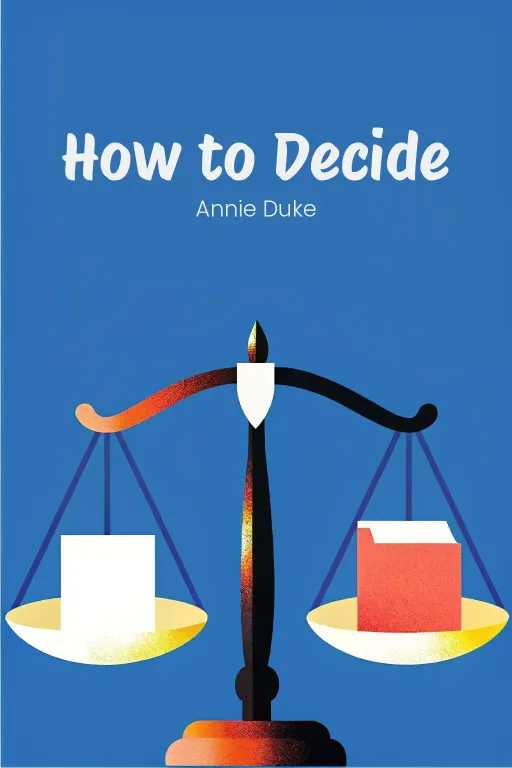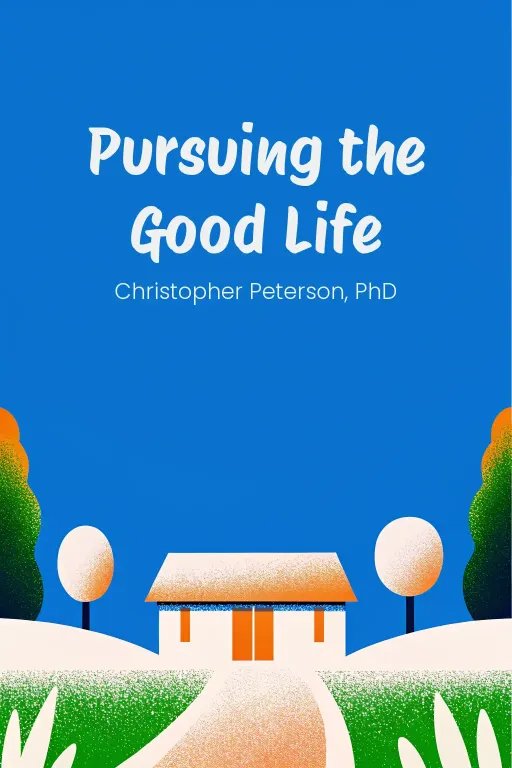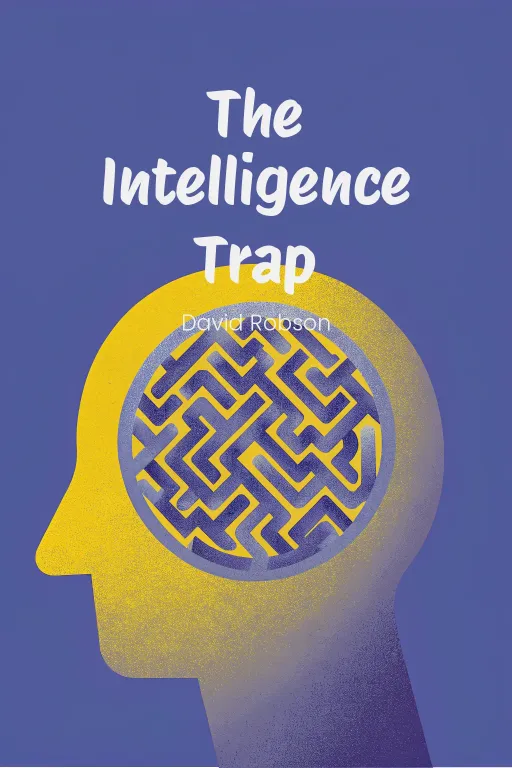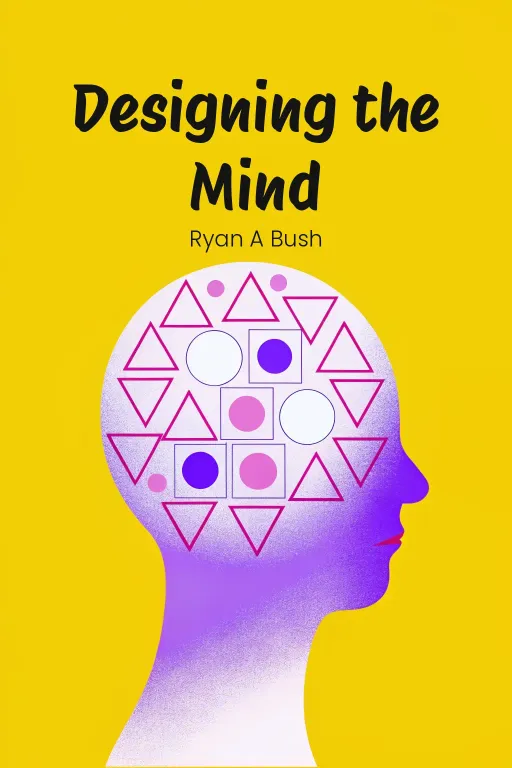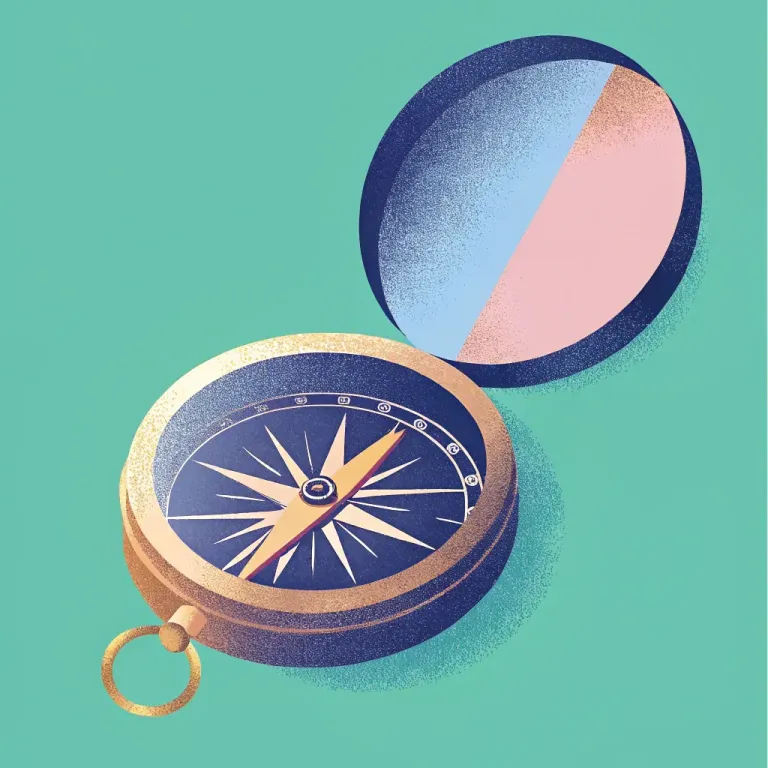
Ditch the Drama: Truth-Seeking Superpowers
Podcast by The Mindful Minute with Autumn and Rachel
Why Some People See Things Clearly and Others Don't
Introduction
Part 1
Autumn: Hey everyone, welcome back! Let's kick things off with a question: Have you ever felt that overwhelming urge to defend your point of view, even when, deep down, you suspected you might be off-base? Rachel: Oh, you mean like when I'm arguing why the original Die Hard will always be superior to all the sequels no matter what? Autumn: Precisely, Rachel! That's what Julia Galef terms the “soldier mindset”. It's a mental state where our primary goal becomes protecting our beliefs and defending our egos, almost regardless of the truth. Rachel: So, I'm guessing the alternative here involves, like, putting down the shield and admitting we might not have all the answers? Autumn: You got it! That's where the “scout mindset” comes into play. Galef presents it as stepping away from that emotional self-defense and moving towards a space of curiosity and genuine truth-seeking. She argues it's a major upgrade to how we think, empowering us to learn from our mistakes, challenge our own biases, and really listen to different perspectives without feeling threatened. Rachel: So, it's like ditching a tattered road map for a state-of-the-art GPS? Okay, you have my attention. Autumn: Exactly! Today, we're going to dig into three key ideas from her book. First, we'll examine the contrast between that defensive soldier and the inquisitive scout – how these opposing mindsets impact everything, from the choices we make to our relationships. Rachel: Let me guess, the “soldier” is the guy insisting the Earth is flat and that 'Die Hard 5' was a masterpiece, while the “scout” actually, you know, looks through a telescope? Autumn: That's one way to describe it! Second, we'll explore the practical tools Galef offers. Things like identifying our own biases, testing the assumptions we make, and using thought experiments to shift our perspectives. Rachel: So, a whole toolkit of mental exercises to help us drop our ego? Sounds a bit painful, actually. Autumn: Trust me, the long-term benefits are worth a little discomfort! And lastly, we'll look at the rewards of adopting that scout mindset. Why living with clarity and being open to change leads not just to better decisions, but also to a deeper sense of confidence. Rachel: Sounds... enlightening, if maybe a little scary. Let's see whether trading my trusty mental broadsword for a compass is actually worth it.
Scout Mindset vs. Soldier Mindset
Part 2
Autumn: So, picking up where we left off, let's really dive into the core of these mindsets. The soldier mindset, as Julia Galef describes, is this deeply ingrained drive we all have to defend our beliefs, right? But it’s more than just being stubborn, it fulfills a need for emotional security. It's our way of reassuring ourselves: "I'm safe, I belong, and my understanding of the world is correct." Rachel: Which explains why it's so incredibly difficult to shake. It's not merely about disagreeing on facts; it's about defending your very self. It’s like your brain is saying, "If this belief crumbles, I crumble along with it." Back in the Stone Age, for a clan of cave people trying to rally around a single mission, I can see how that evolutionary drive would have been incredibly helpful. Autumn: Precisely. Julia Galef emphasizes that this mindset made sense when group survival depended on cohesion and shared beliefs, more than objective truth. In those times, beliefs weren't just intellectual; they were vital signals for staying alive. Rachel: But now, flash forward to today's world, and we're fiercely debating whether texting "haha" or "lol" is funnier. It's as if we've repurposed those primal instincts for the most trivial things. Autumn: Exactly! And that’s the core message of the book. Galef emphasizes that while the soldier mindset protected us socially and emotionally, it often blinds us to reality. Take the Dreyfus Affair, for example. The whole situation wasn’t just about bias; it was this systemic, motivated reasoning. The French army had this image to uphold — that they were noble, united, and infallible. So, the idea that they could make a mistake? Unthinkable! Rachel: Right, and so when inconvenient evidence surfaced, like well, the actual proof not pointing to Dreyfus, the soldier mindset just kicked in, "Nope, can't deal with that. Push it aside. Let's keep pushing the story we want to believe.” Autumn: Exactly. And at an institutional level, that soldier mindset can be catastrophic. Galef argues that motivated reasoning turns individuals, and even entire systems, into defenders of the status quo, even if justice and truth are sacrificed in the process. Rachel: Okay, I get your point. The soldier mindset clearly has its downsides. But let’s consider the alternative — the scout mindset — because it seems to ask us to go against every human instinct. To drop our guard, be open to being wrong, and, get this, actively seek evidence that we might be wrong? Doesn’t exactly sound like a fun, or easy thing. Autumn: Precisely the beauty of it, Rachel. Julia Galef isn’t claiming it’s easy, she's saying it’s necessary. The scout mindset is all about intellectual humility, curiosity, plus the willingness to update your mental "map" of the world as new information becomes available. Scouts aren’t trying to “win.” They’re trying to truly understand. Rachel: But when your opinions or self-image are at stake, curiosity doesn't always come naturally. People do love to be right, let’s face it. So how does Galef suggest we actually become scouts? Autumn: One of her most practical tools is the habit of consciously questioning yourself. She proposes this exercise called the "Outsider Test," where you imagine a completely unbiased observer analyzing your beliefs. Would their conclusions match yours, or would they point out your blind spots? Rachel: Sounds simple enough, but I imagine you have to step outside of your own mental world to examine your own thoughts as an outsider. Not what we usually do. Autumn: True. That's why Galef also explores the underlying mental habits that keep us stuck in soldier mode. Social pressures are a big one. People stand by ideas, whether political, cultural, or personal, not because they've thoughtfully evaluated them, but because dissenting risks their sense of community. Rachel: Oh, absolutely. How many times have we seen someone bite their tongue in public, because challenging the group consensus feels like painting a target on their back? Autumn: Exactly, and it's that fear of being ostracized that reinforces the soldier's tendency to defend the status quo. But Galef makes the point that switching to scout mode isn’t about achieving some idealized, zen-like detachment. It's about recognizing these pressures and being willing to ask, "What if I'm wrong? And what could I learn if I admitted it?" Rachel: And I'm guessing this crazy, uncomfortable question comes with some actual advantages? Autumn: Huge ones! A scout mindset not only helps you discover the truth, but also improves your communication, decision-making, and problem-solving skills. Galef often uses Richard Feynman as an example: his entire ethos was about embracing what you don’t know just as much as what you do. That perspective allowed him to uncover scientific truths that others missed, blinded by their own assumptions. Rachel: So, Feynman was essentially a professional skeptic — of himself as well as the world? Makes sense that it worked for something objective like physics. But how does this apply to regular life, where our emotions and egos are so intertwined? Autumn: Well, take something like giving feedback. Someone in soldier mode interprets feedback as a personal attack, right? But in scout mode, you can start to view it like adjusting your map to get where you want to go. It’s the same with leaders like Abraham Lincoln, who actively sought out opposing viewpoints. By treating disagreement as a source of insight, instead of a threat, you build trust and create solutions that take complexity into account. Rachel: Okay, I'm starting to come around. But as I understand it, Galef’s not suggesting the "soldier" needs to vanish completely. Gotta be some balance, right? Is there room to defend our values, but also stay flexible when the truth demands it? Autumn: Exactly, Rachel. We’re not robots. Julia Galef acknowledges that the soldier mindset will always exist in human life—it’s too deeply ingrained. The goal isn’t to eradicate it, but to cultivate more scout habits alongside it. Think of it as building mental agility. Rachel: So, instead of just digging in our heels when challenged, we ask, "Why do I believe this? And what would it take to change my mind?" Autumn: Exactly. And the beautiful irony, Rachel? The very act of admitting mistakes and seeking truth often makes us stronger. That's how you develop resilience, trust, and adaptability. Rachel: Alright, I'll reluctantly admit, there’s a certain freedom in not feeling like you always have to be right. But thinking about how often I engage in debates with that soldier mindset – I’m suddenly picturing myself charging forward with a dull sword. Autumn: Maybe exchange that sword for a compass? That's the scout mindset, a better map for a brighter journey.
Developing a Scout's Awareness
Part 3
Autumn: So, understanding these mindsets really sets the stage for putting the scout mindset into practice, right? What I find so cool is that Julia Galef doesn't just leave us hanging with the theory—soldiers versus scouts—she actually gives us, like, “tangible” tools to shift gears. To go from clinging to our old defenses to building something new. We're talking about developing a scout's awareness, and it's all about, you know, intentional practices. Rachel: Okay, Autumn, time for the secret sauce, huh? Let me guess, step one: publicly admitting I'm wrong? Autumn: Not quite that blunt, Rachel. The first step is acknowledging that we all carry personal biases. It's about recognizing it, right? Galef dives into cognitive biases and how they kind of shape our judgments. Like, think about confirmation bias, where we actively seek out evidence that supports what we already believe and reject anything that challenges it. I mean, it's subtle, but so powerful. Rachel: Yeah, I get it in theory, but give me a real-world example, okay? Autumn: Sure, Galef talks about this tool called the Double Standard Test. Basically, would you apply the same level of scrutiny to your own beliefs as you would to someone else's? And I love this: she brings in Charles Darwin, right? When he published On the Origin of Species and a prominent zoologist was super critical, Darwin didn't fire back. He literally responded, "I agree with everything you said." Rachel: Darwin, the original Zen master of science, eh? Wait, was he agreeing just to avoid a fight? Autumn: Nah, not at all. Darwin genuinely considered those critiques, because he knew that if there was a flaw in his work, ignoring it wouldn't make it disappear. He embodied intellectual humility. He wasn't trying to win over critics, he was trying to get closer to the truth. That's the scout mindset in action. Rachel: So instead of, you know, throwing bombs back at criticism, you actually sit with it and ask, "Hey, what if there's something to this?" Sounds…difficult. Autumn: It definitely can be! Another cool exercise she mentions is the Outsider Test, right? Think about Andy Grove at Intel. When their memory chip business started tanking, Grove didn't just keep pushing. He asked himself, "If I were a new leader coming into this company, what would I do differently?" That perspective led Intel to pivot to microprocessors, essentially, you know, reinventing the whole company. Rachel: Bold, and not, you know, clouded by nostalgia, right? Grove really stripped it down: If I saw this with fresh eyes, zero emotional baggage, what's the obvious choice? Autumn: Exactly. Galef points out that the Outsider Test forces you to detach from the emotional hold your beliefs have on you. It's not just, "Am I right?" It's stepping outside yourself to ask, "Would anyone see this differently?" And speaking of emotional baggage, there's the Status Quo Bias Test. Rachel: Oh yeah, the classic "we do it this way because… well, we always have!" Enlighten me. Autumn: It's all about challenging the assumption that what's familiar is better, right? Galef uses the Brexit debates as a great example. Imagine asking yourself: "If the UK had never been in the EU, would I still want to join it now?" It takes away that attachment to what already exists and forces you to actually think critically about the alternatives. Rachel: I see how that works, it's like escaping the nostalgia trap, thinking forward instead of clinging to the past. But doesn't all this questioning lead down a rabbit hole? I mean, you're constantly doubting yourself. How do you actually stay grounded? Autumn: That's where calibration comes in, another critical piece of the scout mindset. Calibration means aligning your confidence to the reality of your accuracy. Assessing not just if you're right, but how much certainty you should actually have. Rachel: Okay, so we're, like, quantifying the squishy stuff: feelings, beliefs, overconfidence. Got it. Autumn: Exactly. One of Galef's techniques is the "role-reversal thought experiment." If the situation were flipped, would you hold the same opinion? Say a politician from your party makes a mistake. Do you kind of gloss over it? Would you judge that same act differently if someone from the other side did it? That's a classic calibration question, revealing partisan bias in action. Rachel: So it's a way to test if my biases are, you know, influencing how I weigh the same action depending on who does it. Autumn: Absolutely. It forces you to think about how fairly you are approaching information. Calibration can also help you avoid overconfidence, which Galef argues is a form of "intellectual flabbiness." Rachel: Sure, but let's be real, the real challenge is dealing with people who completely disagree with you. That's when all these biases just come roaring back. Autumn: Totally. Galef proposes structured ways to engage with opposing perspectives, like online spaces that actually cultivate respectful debate. She highlights r/FeMRADebates, where feminists and men's rights activists tackle polarizing topics, but with rules. Both sides are expected to fairly articulate the other's views, right? Rachel: Sounds like a unicorn sighting on the Internet! Does it actually work? Autumn: Surprisingly, yes. Galef shares a story about someone who was skeptical of feminist arguments, specifically around rape culture. But after sincere dialogue, they admitted to actually seeing validity in perspectives they hadn't considered before. The structure made the difference. It wasn't about winning, it was about understanding. Rachel: So respectful conversation actually broke the usual online flame war cycle? Magic! Autumn: It shows what happens when the goal is less about defending your tribe and more about, you know, finding common ground. Another cool story is Joshua Harris, the author of I Kissed Dating Goodbye. For years, he stood by his message, until he actually listened to the voices of those who criticized him. Engaging with their feedback led him to completely rethink his role in that whole movement. Rachel: That's huge, reversing a stance so public and tied to your own identity. Seems pretty rare these days. Autumn: It is, but by approaching criticism with curiosity instead of defensiveness by actually embodying a scout mindset Harris showed how transformation is possible. Rachel: Alright, I'll give you this: I thought the scout mindset sounded like an uphill climb, but maybe that's exactly why it's so important. It seems we're not really wired for it, so building those new habits the tests, the calibration techniques that's how you make it work. Autumn: Exactly, Rachel. It's not about perfection, it's about practicing those habits, intentionally softening those defensive instincts and asking the right questions. Tough, but transformative. Rachel: Fine, I'll trade in my metaphorical soldier sword for a calibration tool. But let's be honest it's gonna take some effort!
Emotional and Practical Rewards of Truth-Seeking
Part 4
Autumn: So, with these tools under our belt, it’s natural to talk about the broader benefits of a scout mindset. It takes effort, sure, but Julia Galef highlights something fascinating: it’s not just about intellectual honesty or better decisions. It offers something deeply personal – emotional clarity, resilience, stronger relationships, even freedom. Rachel: Hold on a second. You're saying that actively seeking the truth, which inevitably involves discomfort and admitting you're wrong, actually makes you feel better? That sounds... counterintuitive, to say the least. Autumn: I agree it sounds counterintuitive, but let’s break it down. Galef makes the case that facing the truth, even when it’s unpleasant, brings clarity to your reality. And that clarity, even if it's difficult, allows you to deal with life more effectively, be it in decision-making, building resilience, or learning from others. Take improved decision-making, for example. If your understanding is based on wishful thinking, you're going to get lost. But if it's grounded in accurate information, well, the path forward becomes clearer, right? Rachel: So the practical benefit is logical enough – better information, better outcomes. But you mentioned emotional clarity too. That sounds nice, but doesn't truth-seeking also... increase discomfort? Autumn: It can, in the short term. But Galef also points out that it reduces the underlying anxiety of self-deception. Think of Steven Callahan's survival at sea. He didn’t sugarcoat his chances of rescue, nor did he let despair consume him. Instead, he embraced a stark, clear reality – carefully rationing supplies and maintaining his raft. That clarity gave him something to do, instead of getting stuck in emotional paralysis, right? Rachel: Right, Callahan wasn't exactly trying to "positive-think" his way out of 76 days on a raft. He worked with what he actually had, facing the truth head-on. Isn’t that kind of resilience pretty rare, though? Autumn: It is less common because most people instinctively avoid uncomfortable truths. But remember, resilience is like a muscle – the more you use it, the stronger it gets. Callahan used small strategies: remembering to be grateful for his raft, reminding himself daily, "You're doing the best you can". It's a very scout-like approach: acknowledge the bad, but focus on what you can actively improve. That's how emotional strength develops – by confronting tough realities, not denying them. Rachel: And you're essentially saying that, over time, this mindset actually rewires you to almost prefer clarity, even when it's painful? Autumn: Exactly! And then the benefits spread to your relationships, too. Think about it: when you are honest and humble enough to admit mistakes, you foster trust. Galef talks about how open communication strengthens bonds. For example, couples who tackle issues head-on, instead of sweeping them under the rug, tend to report higher satisfaction levels long term. Rachel: Alright, I see the connection. When you sidestep the truth, it's like hitting "snooze" on your problems – they don't actually go away. But admitting flaws or facing conflict can be risky. Doesn't that vulnerability sometimes backfire? Autumn: Of course, there's always a risk, especially if the other person is in a soldier mindset. But if both parties value clarity, they can usually resolve issues rather than avoiding them. Compare that to relationships built on self-deception – avoiding tough conversations, for example, or rationalizing mistakes. Galef refers to Tavris and Aronson’s research, which shows how self-justification damages trust. Scouts avoid that trap by choosing humility over defensiveness. Rachel: Hmm, humility – not exactly the first weapon of choice in most arguments. Just look at public debates these days! Everyone's so entrenched in their own position, doubling down even when proven demonstrably wrong. Autumn: Exactly, and that's where Galef ties this to societal progress as a whole. Individual truth-seeking can actually lead to collective benefits. Think about Edward Snowden, for instance. His scout mindset enabled him to reveal systemic problems, knowing full well the personal cost. Or activists during the AIDS crisis, who forced society to confront uncomfortable truths and ultimately catalyzed significant change. The scout mindset inspires a certain kind of courage that transforms not just personal lives, but entire systems. Rachel: So, truth-seeking isn't just about "playing nice" in debates— it’s also about holding the world accountable. And while most of us aren’t Snowdens, I guess these same principles apply to less dramatic situations, like challenging aspects of workplace culture or questioning unfair norms, right? Autumn: Absolutely. It’s about learning to question with integrity, even in small ways. And here’s the kicker: the ultimate benefit might just be personal freedom. By facing reality directly, you stop wasting energy on maintaining illusions. Rachel: Less energy on the charade, and more energy for what actually matters. But doesn't clarity sometimes make things… harder? I mean, what if you confront an unpleasant truth and then just get stuck? Autumn: I think that’s a fair point. Galef acknowledges that clarity isn’t an instant solution – it's more a process, a journey. However, it does empower you with the information to navigate challenges authentically. By embracing reality rather than avoiding it, you gain the confidence to act with purpose, even in times of uncertainty. Rachel: So it’s like trading a bit of short-term friction for a long-term payoff. Scout mode might feel grittier at first, but ultimately makes life lighter. Autumn: Perfectly said! It truly is about liberation – freedom from the burden of self-deceit. Whether it's better decisions, emotional resilience, or deeper connections, the rewards of truth-seeking make the effort worthwhile. Rachel: Alright, alright… you’ve convinced me. The next time I'm tempted to dig my heels in on a bad argument, I'll try swapping "defend and deflect" for "explore and reflect." But promise me it gets easier with practice! Autumn: It absolutely does, Rachel! And the outcomes – better relationships, sharper decisions – are proof of how transformative the scout mindset can be. Truth-seeking doesn’t just build better maps, it shapes better lives.
Conclusion
Part 5
Autumn: Okay, let’s bring this home. Today we dove into Julia Galef's “The Scout Mindset”, really focusing on the difference between having a “soldier” versus a “scout” mentality. That soldier mindset, where we’re just defending our beliefs, yeah, it feels safe, but it can totally blind us to the truth and prevent us from growing. Rachel: Right, it's like building a fortress around your ideas. Compared to that, we’ve got the scout mindset, which is all about being open, curious, and adaptable. It’s about actively “seeking” the truth, even when it's a little, or a lot, uncomfortable. Autumn: Precisely! And we talked about some useful tools, like the Outsider Test and the Double Standard Test, to help us identify our own biases and really question what we assume to be true. And, hey, let’s not forget the emotional benefits! Better choices, stronger relationships, and this amazing sense of clarity and freedom. Rachel: Because ultimately it’s less about “being” right, and more about constantly calibrating, right? Being willing to update your understanding of things. So, Autumn, how would someone apply this to modern urban life? Autumn: Well, the scout mindset isn’t just about being “right”, it’s about being willing to evolve, to build better maps, and to actually engage with the world with curiosity and courage. Rachel: So, here's a practical challenge for our listeners: Next time you get some feedback that stings, or you run into a viewpoint that clashes with yours, just try asking yourself, "What am I missing here?" Look at it as a chance to stress-test your own beliefs, see what holds up. Autumn: Exactly! It's not necessarily easy adopting the scout mindset, but the long-term rewards—a sharper sense of the truth and a deeper connection to everything around you—are definitely worth the effort. Rachel: Okay, brilliant stuff. Until next time, keep exploring, keep challenging your assumptions, and uh... stay curious, everyone.





